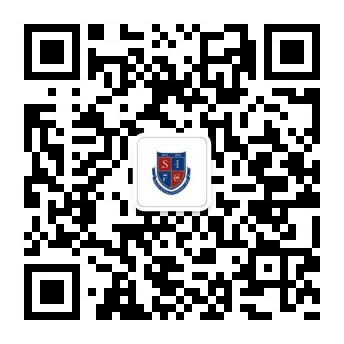AP in SIFC

One of the requirements of teachers in the United States is to continue growing through participation inprofessional development programs. Among the most prestigious such programs is the AP teacher training workshop, arranged by the College Board, the non-profit organization that publishes the AP exams and the SAT. To help support international school teachersin China, the College Board organizes annual workshops in China, bringing experienced AP exam writers and graders to give insights on the AP exam, shareguides and suggestions on pedagogy, and discuss best practices in supporting student success both in the AP classroom and on the exam. The College Board's AP Workshop in China was in Nanjing this year on October 19-20th,and two teachers from SIFC traveled north to attend the workshop.
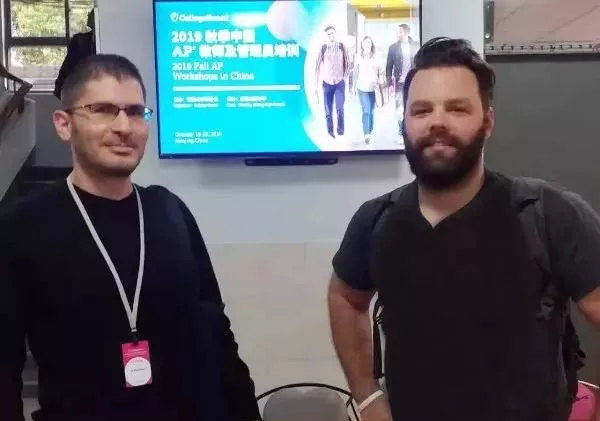
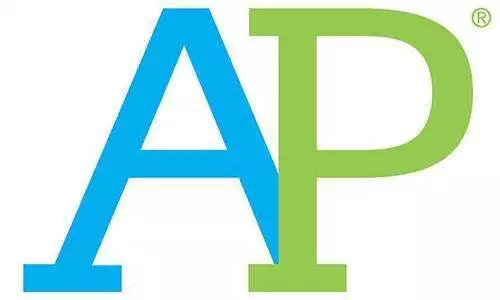
AP courses is perhaps the best way for students, especially international students, to test the waters and gauge whether they are ready for college. Typically an AP course contains the same content as a survey course at a US university. Additionally, students who get a 3 or above can get college credit in most US universities. It is little wonder, then, that the number of students taking AP exams keeps increasing and that AP exam results and course grades are an important criteria for college applications.
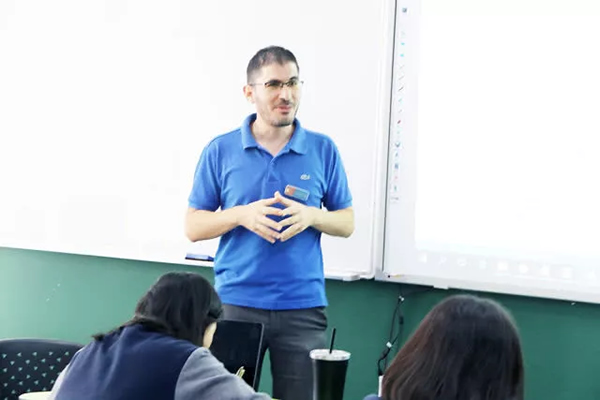
SIFC Teacher Mr. Andrey Dubinsky attend the AP Psychology workshop. Take AP Psychology workshop as an example. The workshop facilitator this year was a teacher from a top international school in Korea who has been teaching AP psychology for a decade and has been reader and grader of the exam for several years. The workshop included 8 sessions of about 2 hours each; each session centered around a different topic. One session focused on training teachers on grading the AP free response questions, so that teachers can better guide students on writing concise yet accurate question. Another key session discussed changes in the AP curriculum, as the College Board has updated most of its courses, adding some new materials, as well as additional tools for students such as the AP Classroom.
One of the best sessions is usually the last one, where teachers take the stage and share with each other favorite activities, projects, and videos. Not only does this provide participants with a trove of new activities to incorporate into the curriculum, it creates a community of knowledge among AP teachers in China's international schools. One particularly useful discussion looked at strategies to improve outcomes for English language learners who want to take the AP exam yet struggle with the general vocabulary required for the course.
While it was a tiring weekend, it was a very valuable experience, and I am confident that it will benefit SIFC students greatly as they prepare to take the AP exam this year.
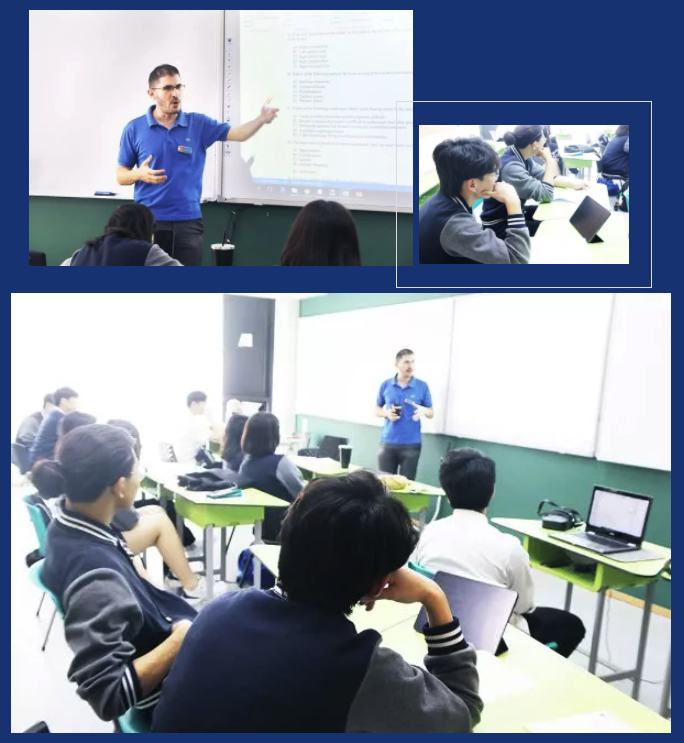
SIFC AP Psychology class
AP Psychology is one of the most popular AP classes at SIFC, as it provides students with an opportunity to discover more about themselves, while also getting early exposure to research terminology and practices which will be utilized throughout the students’ college career. At the same time, AP Psychology is often particularly challenging for non-native speakers, as it includes an immense amount of complex academic vocabulary from both the biological and social studies domains. Topics are diverse, ranging from research methodology and the structure of the nervous system to social and cultural psychology and norms, ethics, and understanding how to achieve self-realization through positive psychology. While students often come to class expecting to learn about different types of mental illnesses, they quickly realize that this is not the case. Instead, there are in-depth examinations of how learning takes place, how memory works, how the brain analyzes visual and audio information, how children develop from birth to adulthood, and many other topics that are relevant to all of us.
Another Teacher Mr. NicholasFrancesco attend the AP English Literature and Composition workshop, which was designed for both new and experienced teachers, reviewed materials and course outlines, provided valuablec ontent-related handouts for teachers, and examined student samples and scoring guidelines that focused on pedagogical techniques and content-specific strategies which will be used in the SIFC classroom.
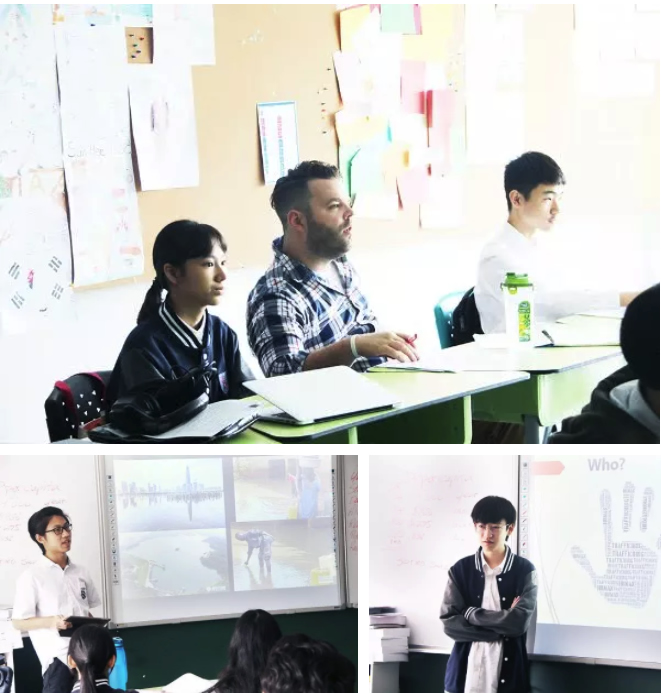
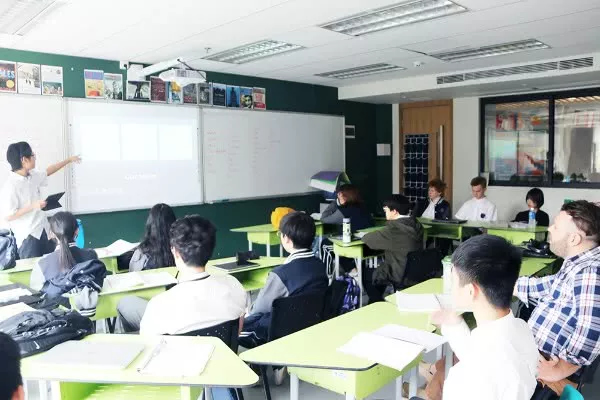
SIFC Honors English Language Arts class
After attending this workshop, the teacher is better able to provide aligned instruction with the goals of the AP English Literature and Composition course. Furthermore, the teacher can more accurately identify the skills and knowledge that the AP English Literature and Composition exam will assess, and more clearly identify the tasks and materials for which students might need more preparation. These skills will better serve not only the teacher and students, but the entire SIFC community which has been enriched by the valuable educational approach of the AP.

This academic year, SIFC has opened more AP courses, including AP Human Geography for our grade 9 students. Take Social Science as an example, the courses offered by SIFC include Human Geography, AP Human Geography, World History, AP World History, Introduction to Psychology, AP Psychology, AP Microeconomics and AP Macroeconomics.

Today, looking at human geography, it is clear that geography can be both a liberal arts and a science course. When it focuses on the physical properties of the earth, such as soil and vegetation, it is a kind of natural science; when it focuses on cultural attributes, it is a social science. Let's take a look at grade 9 AP Human Geography at SIFC.
As SIFC continues to grow and develop as a leading international school in Shenzhen, the high school has rolled out several new and challenging course offerings for students. This is the first year that SIFC has offered AP Human Geography. Additionally, it is the first time that SIFC grade 9 students have been offered an AP course. The goal is to develop students' awareness of spatial patterns and global issues. Examining how these issues affect people and places across different regions of the world. So far, the students have been thriving, developing new spatial analysis and interpretation skills.
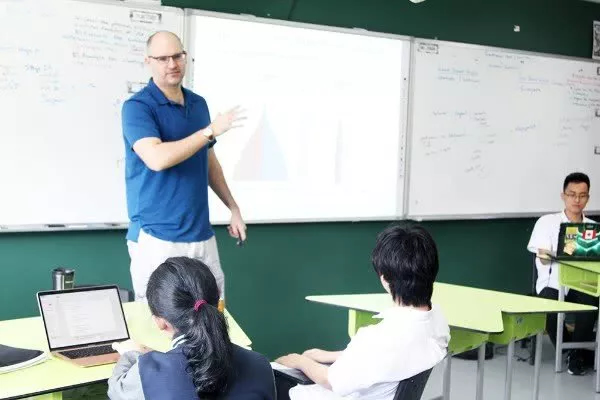
SIFC Honors Human Geography class
The pictures show the results of the first spatial analysis project and assessment given to the students. The students needed to calculate the arithmetic density for the entire United States as well for each of the 50 states (population density). The students then had to create thematic choropleth maps to show which states had a higher population density and lower population density as compared to the national average.
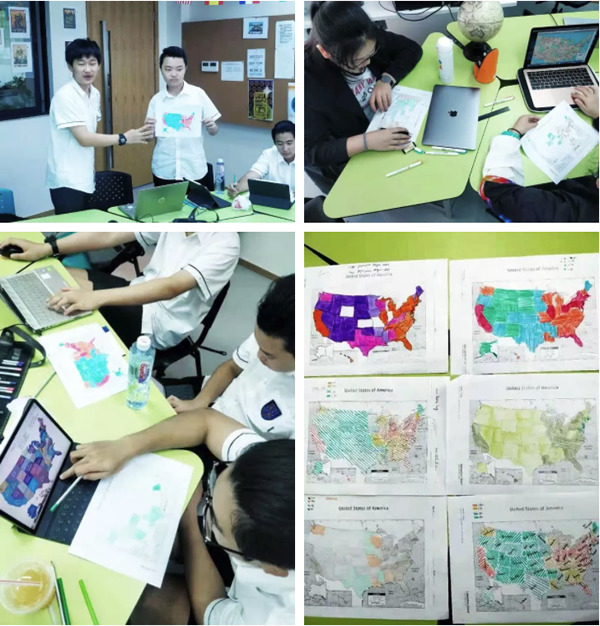
Using spatial awareness, color contrasting and artistic skills, the students created maps which best highlighted these differences between states and regions in the U.S. Students then wrote a spatial analysis report, in which they considered possible economic, political and social reasons for the spatial patterns of population density.

According the AP Human Geographyinstructor, Mr. Patrick Phillips, all students displayed a basic mastery of theskills and content knowledge needed to excel in this project. Grade 9 studentstaking an AP course is extremely challenging, even for top students in theUnited States. Performing at a high level in this class this early on in highschool, shows the tremendous potential our students have academically to becomewell rounded learners with the necessary critical thinking and analyticalskills needed to excel at world class universities in the future. Great workand a great start to the year for our grade 9 students!
